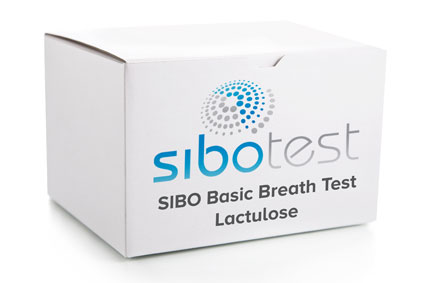PCOS Tests You Should Know About
What many women with PCOS are not told, is that there are specific causes or drivers of PCOS that can be reversed. To find out which unique drivers are causing your PCOS, we recommend doing more advanced lab tests…

PCOS or Polycystic Ovarian Syndrome
PCOS or Polycystic Ovarian Syndrome can be a very frustrating condition to deal with. Most of the time, patients are told that PCOS is genetic and should be treated with birth control pills, male hormone blocking drugs, anti-diabetic drugs and powerful ovulation agents or invasive fertility techniques for those that want to get pregnant.
What many women with PCOS are NOT told, is that there ARE specific causes or drivers of PCOS that CAN be reversed. To find out which unique drivers are causing your PCOS, we recommend doing more advanced lab tests. These tests are looking for the following PCOS drivers:
» Sugar and Insulin Imbalance
» Adrenal hormone imbalance and estrogen dominance
» Liver detoxification issues
» Imbalances or infections in your intestine
Between 5% and 10% of women between 15 and 44 have PCOS
%
A Comprehensive Functional Blood Panel
These tests go beyond the testing you may have gotten in the past. Here we try to find evidence of insulin resistance–one of the earliest signs of sugar imbalance. We don’t want to wait until you are pre-diabetic or fully diabetic before we intervene. Catching these issues early will make it easier to reverse. And with the rise of insulin resistance nationwide, we commonly see this as a driver of hormone imbalance.
What do we test?
- Fasting glucose and hemoglobin A1c
- Fasting insulin
- Liver enzymes for signs of “fatty liver”
- Comprehensive lipid panel that adds LDL-P or LDL particle number. LDL-P gives us a sense of whether or not you are genetically unable to tolerate saturated fats in your diet and should follow a more Mediterranean diet approach.
- A 2- hour glucose tolerance test WITH insulin (if needed)
The Dutch Complete Hormone Test
The Dutch test gives us a LOT of information about your female sex hormones and adrenal stress hormones.
- Do you fall on the spectrum of adrenal imbalance?
- Are you making too much, too little or normal amounts of cortisol?
- Are you breaking down your cortisol too slowly or burning through it quickly?
- Is your circadian cortisol rhythm normal or disrupted?
- Do you have normal melatonin levels?
- How much testosterone, estrogen and progesterone are you making?
- Are you breaking them down safely and effectively?
The Dutch test gives us a lot of information about your female sex hormones and adrenal stress hormones.
Often with PCOS there is an estrogen-dominant picture, which can be behind a lot of uncomfortable hormone issues like PMS, breast tenderness, painful and heavy periods, infertility or miscarriage and risks for breast, uterine or ovarian cancers. Estrogen doinance means that your estrogen levels are much higher than your progesterone levels. It’s more about the relative balance of these hormones than the total amount. Why do women develop estrogen dominance anyway? Three main reasons.
- High levels of estrogen exposure (both from our own making and from outside exposure)
- Liver detoxification issues
- The wrong gut microbes overgrowing in our intestines or not having enough of the protective “good guys”
How do you do this test?
You have to collect 4 different urine samples at home, over a 24 hour period of time. We ask you to check this during the 2nd half of your menstrual cycle to get information about how much progesterone you are or are not making. If you aren’t cycling you can do it any time.
Advanced Testing For The Gut
We usually start with a PCR stool test (one that uses genetic sequencing) that gives us a good idea of what’s happening with your G.I. microbes.
- Do you have too much of the wrong bacteria, the kind that makes you overweight?
- Are you low in the good kinds that process estrogen well, and make you lean?
- Are there infections in the gut you may not be aware of?
We can also find out about:
- If you are breaking down fats well or not absorbing nutrients well
- If you are making plenty of digestive enzymes
- If your immune system stationed along the gut wall is working
- If you’re making antibodies against the wheat protein gluten
- If there’s inflammation present and to what degree
The majority of women with PCOS and hormone imbalance have issues with their gut bacteria and digestion. We think it is important to know exactly what’s going on there rather than guessing blindly. When you test, you will be able to get very targeted therapy for your specific conditions.
SIBO Breath Testing
We may wish to test for small intestinal bacterial overgrowth (SIBO). This is a condition when bacteria that is normally present in the large intestine is found in abnormally high amounts in the small intestine, which is typically a pretty sterile area of the bowel. Why do this test? If you have any of the following symptoms or conditions:
- Symptoms of bloating
- IBS diagnosis
- Long-standing constipation or slow bowels
- Persistent loose stool or particularly smelly gas
- Problems digesting foods high in fiber, like raw fruits and vegetables or certain carbohydrates

Where Can You Get These Tests?
As you may guess, these tests are not usually offered by most conventional docs. A functional medicine MD is well versed in interpreting these tests for you. If you wish to explore these tests to find out why you have PCOS, please let us know by scheduling an appointment with Dr. Sadaty.